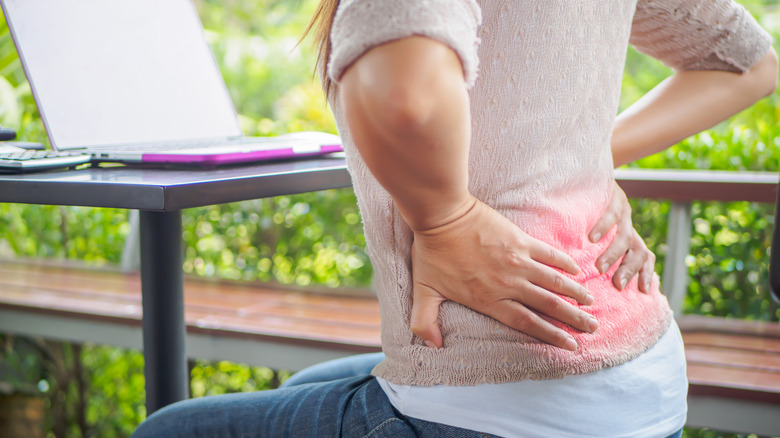What Does It Mean When Your Right Hip Hurts?
Experiencing body pain in any capacity is an alarming experience for most, especially when it impacts a large area of the body including the hip. But, what does it mean when the right side of your hip hurts?
According to WebMD, the hip joint is a very resilient part of the human body and allows for a lot of fluid movement and potential friction. However, a person's hip is far from indestructible and the muscles and cartilage of the hip are gradually diminished with age.
Some of the most common causes of hip pain include osteoarthritis, which can lead to inflammation of the hip joint, a hip fracture, the inflammation of tendons in the hip, known as tendinitis, muscle or tendon strain in the hip, and bursitis, which occurs when sacs of liquid known as bursae become inflamed and cause body pain.
If pain in your hip is localized to just the right side, this could also be a sign of an injury.
Here's when you should see a doctor for your hip pain
According to the NHS website, some less common causes of hip pain include the condition femoroacetabular impingement, which occurs when the bones of a person's hip rub together due to abnormal shape, a hip labral tear, a condition known as hip dysplasia — which occurs when the hip joint is not in the right position to properly cover and support the top of the leg bone — an infection in the hip bone or joint, otherwise known as septic arthritis, and reduced blood flow to the hip joint, which is commonly referred to as osteonecrosis.
Per WebMD, there are ways to treat less serious symptoms of hip pain at home, including non-steroidal anti-inflammatory drugs such as ibuprofen. Another potentially effective way of treating hip pain is to apply ice to the area for roughly 15 minutes a few times each day, or, alternatively, to use warm water in a bath or shower to prepare your hip muscles for stretching exercises that can help to relieve pain.
It is advised you seek immediate medical attention if a fall or injury brought on your hip pain, if the pain arrived suddenly, if your hip looks deformed or is bleeding, if your hip pain is unbearable, if you heard a popping sound from your hip following an injury, if you can't apply any weight on your hip, or if you can't move your legs or hip.

